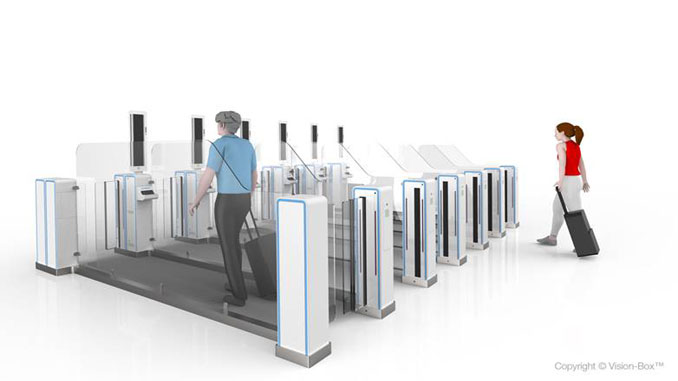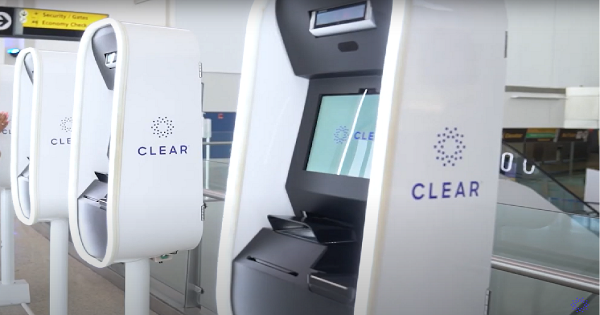Sydney is the latest Australian airport to announce a trial of facial recognition to eventually replace passports.
Starting in May, Qantas passengers at Sydney Airport can take part in a trial using facial recognition to replace their passport.
Sydney Airport chief executive Geoff Culbert said the introduction of biometric processing will turn passengers’ faces into both their passport and boarding pass.
Passengers taking part in the trial will go from check-in to the aircraft only showing their passports once.
At the moment, international passengers show their passport up to six times: during check in, baggage drop, border processing, security screening, airport lounge and the boarding gate.
But the biometrics system will mean that passengers only have to show their passport once for verification when they first arrive at the airport.
Passengers will even be able to check-in for their flights at home using facial-recognition technology on their smartphones. Scanners at egates will then identify their faces at bag drop, border processing, security screening, the airport lounge and boarding gate.
Full details of exactly how the processes will work are not yet available. For example, passengers wanting to take part in the trial will be required to register with the Australian Border Force in May but it is not known what details they have to provide. The airport said that ‘relevant privacy issues’ will be managed.
Last July, the Australian government announced a contract with Portuguese company Vision-Box to install 105 new ABC eGates, called SmartGates in Australia, with more to come later. The eGates use facial recognition technology.
Brisbane Airport facial recognition trial
In March 2017, Brisbane Airport, in partnership with SITA and Air New Zealand, launched a trial of facial recognition technology. That trial allowed passengers to present their details at a self-service kiosk at check-in then, when ready to board, use an automated boarding gate to be verified using face recognition technology to access the aircraft. No passport needed as the data was captured at the kiosk. That trial has shown a 70 per cent reduction in processing times for boarding and check-in.
N.B. Image credit: Vision-box







